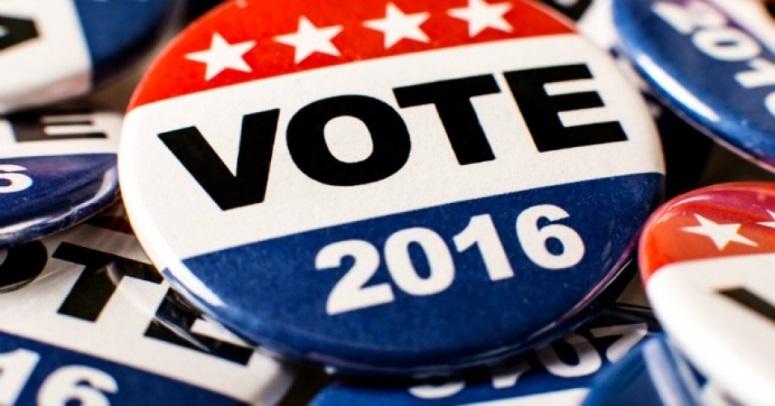Election Day Primer: 5 Requirements and 5 Tips for Texas Employers
October 27, 2016 by Brown Fox
 The relentless 2016 election cycle is drawing to a close, with Election Day only twelve days away. Many employees will vote early, while others will line up at polling places across the country a week from Tuesday. It’s our obligation, right, and honor as Americans to vote, but it’s also American employers’ obligation to provide their employees the time and freedom to vote. This post highlights five keys for employers to remember and five tips for employers to embrace on this special day.
The relentless 2016 election cycle is drawing to a close, with Election Day only twelve days away. Many employees will vote early, while others will line up at polling places across the country a week from Tuesday. It’s our obligation, right, and honor as Americans to vote, but it’s also American employers’ obligation to provide their employees the time and freedom to vote. This post highlights five keys for employers to remember and five tips for employers to embrace on this special day.
5 Keys for Employers to Remember on Election Day
1. Employees can miss work to vote.
Outside of the limited exception addressed below, employers must allow their employees to miss work on Election Day for the purpose of voting. Tex. Elec. Code Ann. § 276.004. This right applies to all government elections, not just presidential cycles.
2. Retaliating against or penalizing voting employees is prohibited.
The employer cannot retaliate against an employee who has voted for or against a candidate or proposition or an employee who has refused to reveal how he/she voted. See id. at § 276.001(a). Retaliation under this first prohibition happens when an employer knowingly (1) harms or threatens to harm the voter by an unlawful act or (2) subjects or threatens the employee-voter to a loss or reduction of wages or another form of employment benefit. See id. at §§ 276.001(a)(1) and (a)(2). Notably, any person who has authority over an employee in the scope of employment can violate this law. See id. at § 276.004(a).
An employer also cannot penalize an employee for voting on Election Day. See id. at §§ 276.004(a)(1); 276.004(a)(2). A “penalty” under the statute “means a loss or reduction in wages or another benefit of employment.” Id. at § 276.004(c). In other words, employers and supervisors cannot fire, demote, reduce pay, mistreat, harass, or threaten an employee for voting, considering voting, or for how he/she voted. Given the great opportunity we have to vote in peace in the United States, employers should not only respect these laws, but also encourage their employees to get out and vote.
Lastly, if an employer’s retaliation or penalty crosses the threshold of discrimination based upon race, gender, religion, or any other protected class, the employer could be dealing with more than simply an election law violation.
3. Employers must pay standard wages to employees while they are voting.
The employees must be paid their standard wages while missing work to vote. Id. at §§ 276.004(a)(2); 276.004(c).
4. Employers are not required to provide time off to vote if the employee has enough time to vote outside of his/her work hours.
If the employer’s employee has two consecutive nonworking hours to vote, the employee is excluded from the above requirements. See id. at § 276.004(a)(2). In many cases, employees may barely have a two hour period before or after work. A good solution for some employers might be to voluntarily provide an early release or late start to give employees more time to cast their votes.
In Texas, polling locations open at 7:00 a.m. and close at 7:00 p.m. See id. at § 41.031. If a voter is “inside or waiting to enter the polling place” at 7:00 p.m., the voter will be allowed to vote. See id. at 41.032.
5. Violating these laws is a big deal.
A violation of Section 276.001 is a Third Degree Felony and Section 276.004 is a Class C misdemeanor. See id. at §§ 276.001 (b); 276.004(d). In other words, a violation of these laws goes beyond civil remedies and could result in a felony conviction. This is a pretty good time to remember the tag line, “Don’t Mess with Texas.”
5 Tips for Employers for a Worry Free Election Day
The keys above cover the bare minimum an employer must do on November 8th. However, I recommend that employers savor the great freedom we are given in this country and go above and beyond what is called for under Texas election laws. Here are five tips for November 8th at the office:
- Send an email to your workforce encouraging employees to vote.
- Provide clear opportunities to vote during the workday if employees do not have two consecutive hours to vote outside of work.
- Remind employees that they will be paid their wages while voting during work hours.
- Do not ask how employees voted. Instead, congratulate them for being part of the democratic process.
- Celebrate the freedom and peace we have to vote with our employees!
Get out and vote and may God continue to bless America.
Russ Brown is a labor and employment attorney, founding member of the firm, and serves as Managing Partner. To learn more about Brown Fox’s labor and employment practice group, click here.


